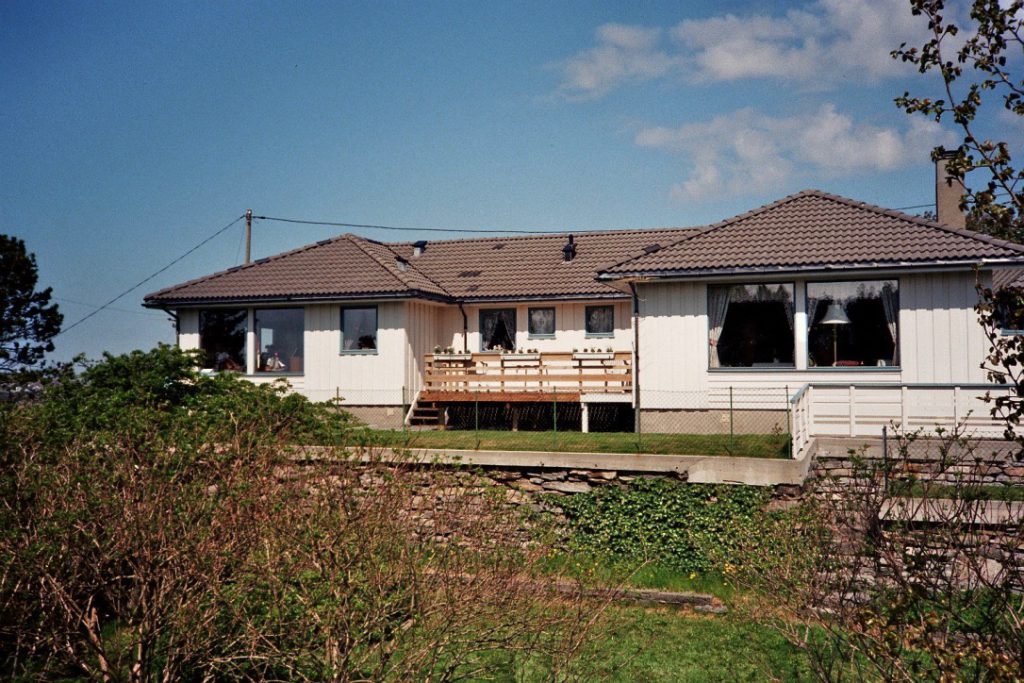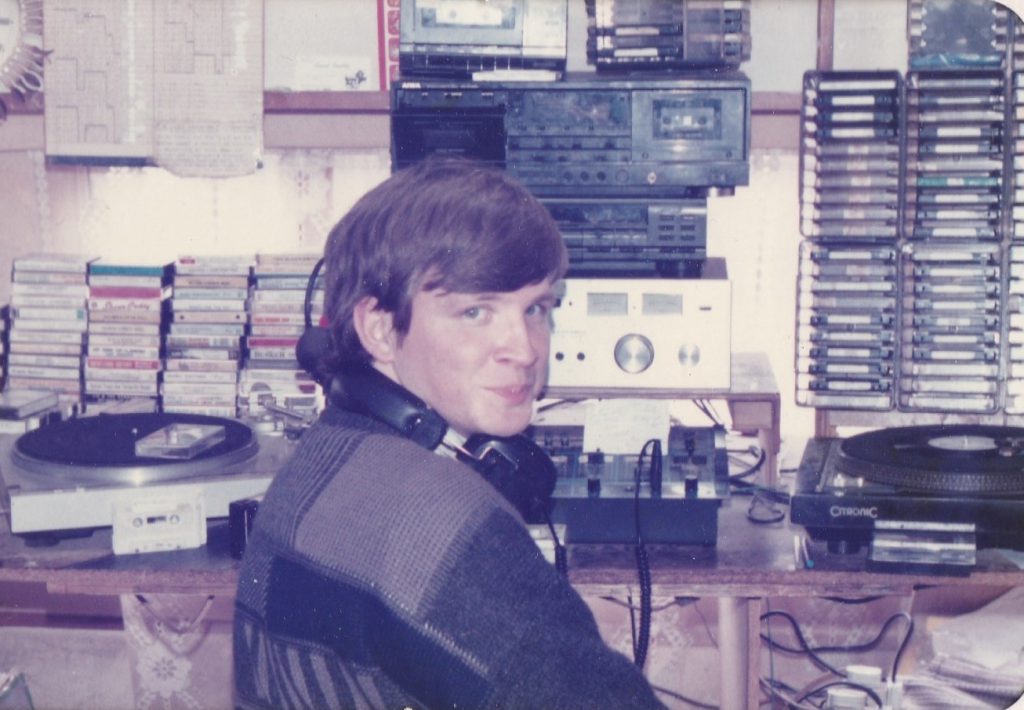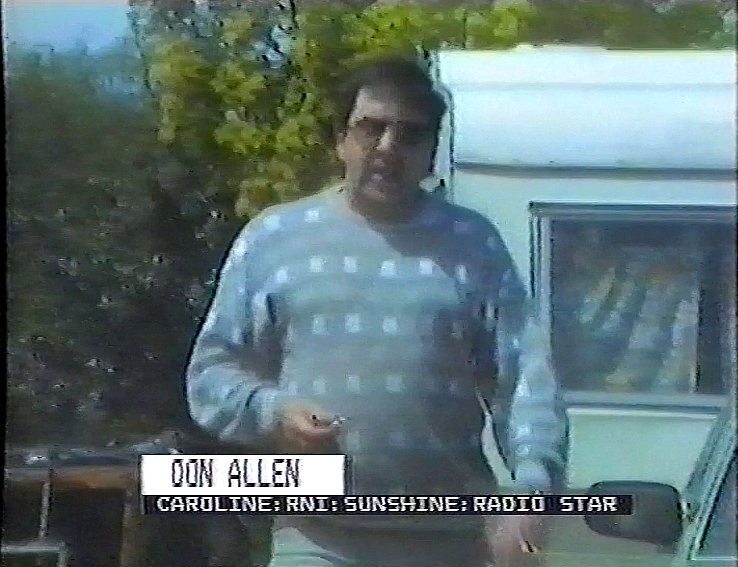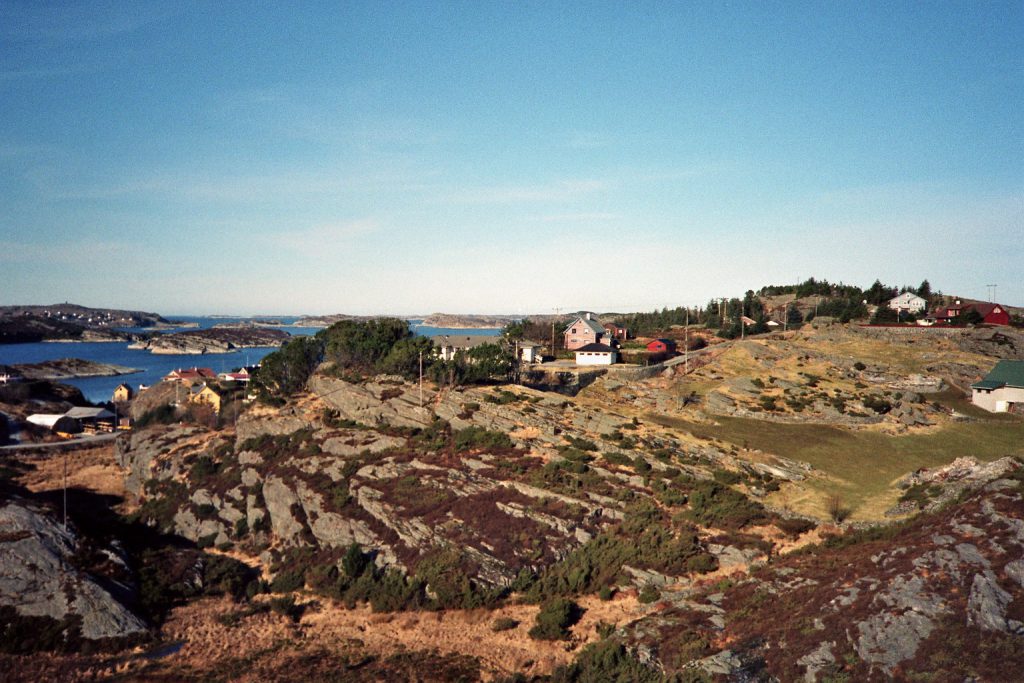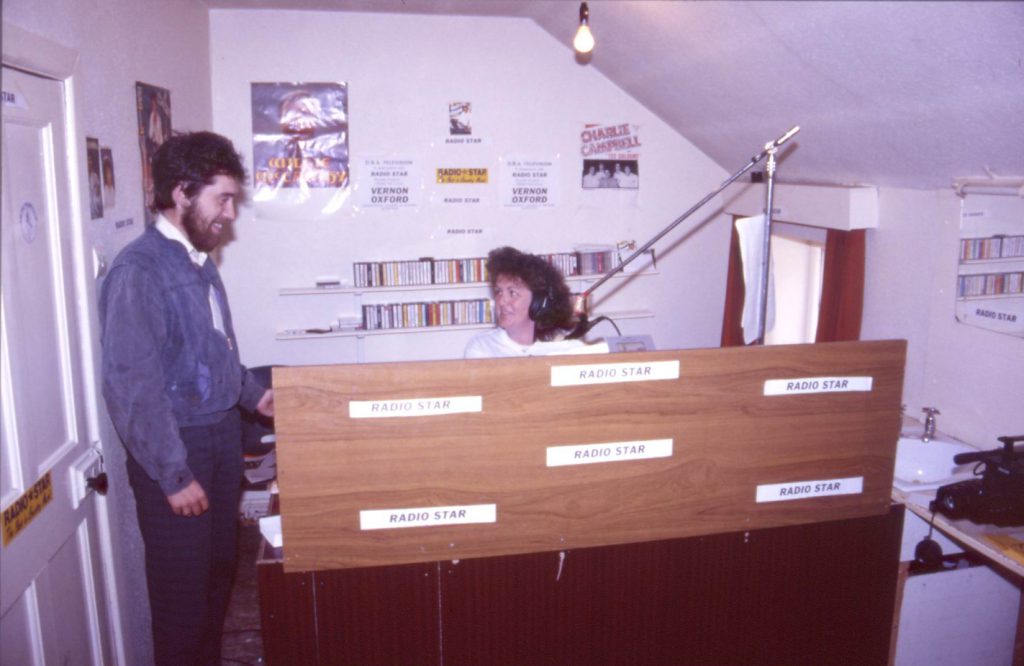Podcast: Play in new window | Download
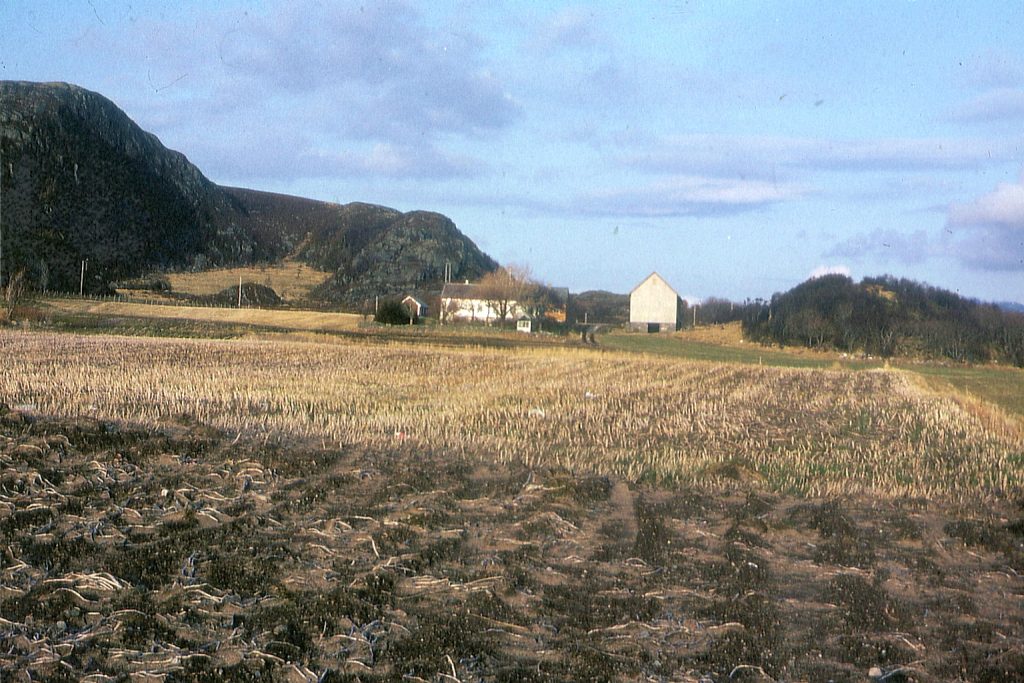
Today we feature another recording of Monaghan station Radio Star Country made on the western coast of Norway. It features continuous music at breakfast time, including a promo is heard for “your own 24-hour a day country music station from Monaghan to wherever you are” but with no commercial breaks. The fact that there was no live DJ in a peak listening slot underlines how Radio Star Country sometimes failed to provide a core schedule in the post-1989 period.
Audio quality is fair at the beginning but deep fading occurs after about 20 minutes. There is some wobble but it is not clear if this was on the station’s side or is due to the degradation of the tape over time. The receiver is retuned to an unidentified UK AM station at the very end. The recording was made in Solsvik, Norway from 981 kHz between 0755 and 0840 on 29th October 1994. The receiver used was a Drake SPR-4 with a 200-metre antenna facing southwest. Thanks to Svenn Martinsen for the donation.

